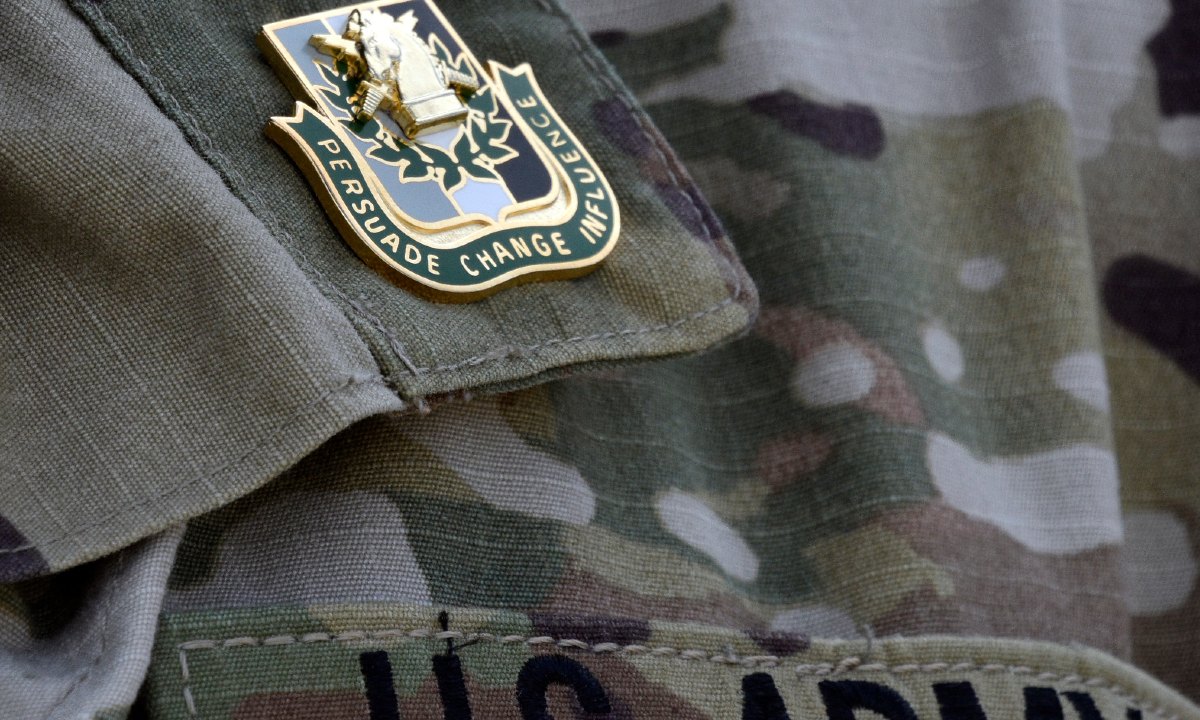Modern War Institute at West Point. I put it here on purpose. Alex is a business selling model, this is 180 degrees opposite.
Editor’s note: This article is the fourth in a series, “Full-Spectrum: Capabilities and Authorities in Cyber and the Information Environment.” The series endeavors to present expert commentary on diverse issues surrounding US competition with peer and near-peer competitors in the cyber and...

mwi.usma.edu
PSYOP, Cyber, and InfoWar: Combating the New Age IED
Chaveso Cook and
Liam Collins |
04.06.21
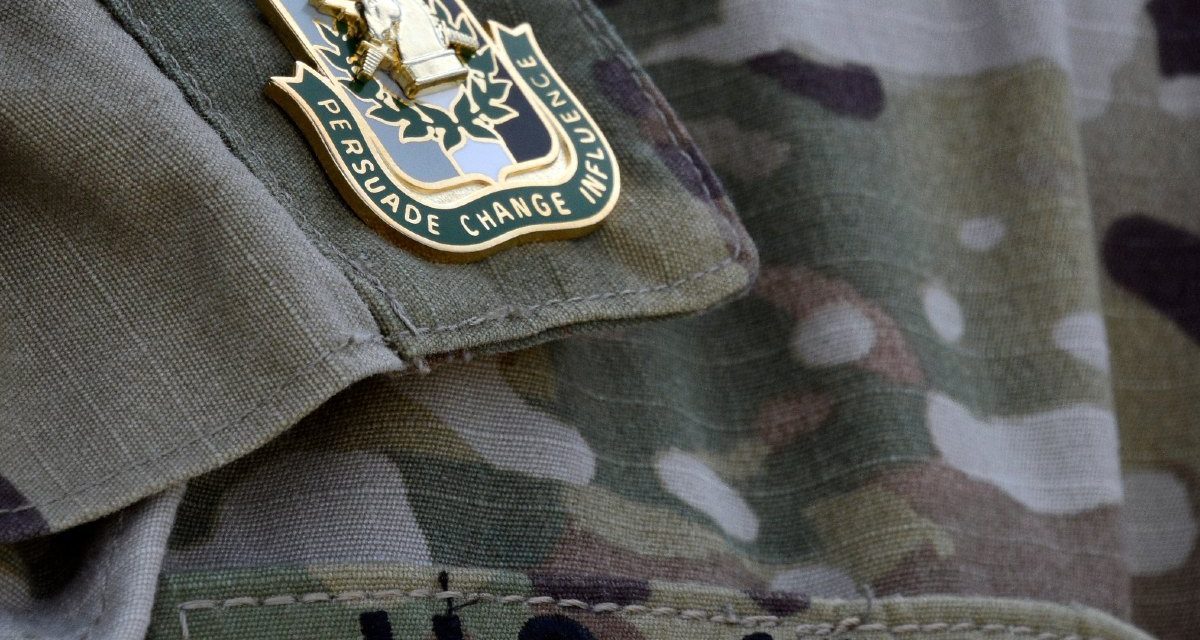 Editor’s note: This article is the fourth in a series, “Full-Spectrum: Capabilities and Authorities in Cyber and the Information Environment.” The series endeavors to present expert commentary on diverse issues surrounding US competition with peer and near-peer competitors in the cyber and information spaces. Read all articles in the series here.
Editor’s note: This article is the fourth in a series, “Full-Spectrum: Capabilities and Authorities in Cyber and the Information Environment.” The series endeavors to present expert commentary on diverse issues surrounding US competition with peer and near-peer competitors in the cyber and information spaces. Read all articles in the series here.
Special thanks to series editors Capt. Maggie Smith, PhD of the Army Cyber Institute and MWI fellow Dr. Barnett S. Koven.
Extremist ideology and the associated mass-casualty acts of both domestic and foreign terrorism remain a threat to the global community. Ideology is the manifestation of deeper beliefs based upon intensely held but rarely understood underlying assumptions. A bullet may kill an extremist but it will not kill extreme ideology; that is,
“Bullets do not kill ideas. . . . A ‘hot’ war against an idea is destined to be a losing prospect.” Arguably, 9/11-like events in the form of large suicide bombs will be replaced by mass media exploitation, political chess, electoral manipulation, and cyber intrusion via social influence mediums. These events will likely occur just beneath the surface, more improvised explosive device (IED) than weapon of mass destruction (WMD).
The ubiquity of the internet and social networking involves the exponential growth of a globally connected culture. As a consequence, a comprehensive understanding of the web is critical for the defense of our nation. As a
manifestation of Moore’s Law, technology has advanced at an exponential pace and the associated technological platforms have evolved at an even higher rate. These platforms need to be understood, as recognized in the creation of US Cyber Command (USCYBERCOM) in 2009. However, it is possible that the social network is the new daisy-chained IED, in that it may be the case that USCYBERCOM is not best positioned to be the assault force, quick reaction force (QRF), or explosive ordinance disposal (EOD) team. To address this possibility, this article examines the reasons why psychological operations (PSYOP) forces have distinct advantages in comparison to the cyber community regarding online influence efforts.
Just as IEDs can tell quite a story about the networks behind them when
their components and characteristics are examined in detail, much can be learned about the actors behind information operations by examining the social network links and nodes through which they propagate. Arguably, success against extremism and propaganda in the cyber domain hinges less on deftly maneuvering within the hypertext transfer protocol and more in the psychological battlespace—that is to say, through understanding the “gray matter,” or decision-making apparatus, of adversaries and their foreign populations. The internet is the means, not the ends. Perspective with precedent matters here. If
Clausewitz’s idea that war is an extension of politics is still believed, and Moises Naim’s claims in
The End Of Power—that power no longer resides exclusively (if at all) in states, institutions, or large corporations—are also believed, then centers of gravity will remain located in the networks that structure society.
The information revolution has created new economic entities, ones predicated on streams of data and social networks and possessing at least as much power as other forms of organization. However, these endeavors remain human endeavors animated by psychological functioning. As such, the fight of today and tomorrow is one of
understanding minds, beliefs, and behaviors. To this end, as stated on a Modern Warfare Institute
podcast, “exquisite understanding is more important than exquisite technology.”
The PSYOP practitioner, together with other special operations forces, shoulders the ability to understand, operate within, and influence populations, but given the growing power of influence operations in the cyber domain, it is increasingly important for all forces to understand, operate within, and influence populations. The United States will continue to encounter foes who seek to conduct nonstandard, unconventional, and irregular warfare. Regardless of the methods that may be used by these adversaries, the ultimate objective is to change perception and opinion. After decommissioning the US Information Agency in the late 1990s, influencers have had no unifying agency to coordinate messaging across the internet. However, influencers have still understood the importance of leveraging the internet as a critical piece of infrastructure. Nevertheless, to use this infrastructure
effectively, a practitioner must also be well versed and well practiced in changing the behaviors of the internet’s human users.
Action . . . and Doctrine
The conflation of efforts by USCYBERCOM and PSYOP elements creates two challenges. The first is tied to doctrine: information operations doctrine acknowledges the important role that cyberspace operations play in information operations, while cyberspace operations doctrine largely ignores this relationship and the human element. At the inception of USCYBERCOM,
Joint Publication 3-13 offered a roadmap for information operations that included cyberspace operations, PSYOP, electronic warfare, operations security, military deception, and public affairs. Ensuing
doctrine defined cyberspace as “a global domain within the information environment consisting of the interdependent networks of information technology infrastructures and resident data, including the Internet, telecommunications networks, computer systems, and embedded processors and controllers.” However, this definition, unlike the information operations roadmap, lacks the cognitive, human element that the internet represents; this omission has adversely affected how the military organizes, trains, and utilizes its forces.
The second challenge involves the velocity and volume of disinformation, propaganda, and threats to cybersecurity in the contemporary information space. The erosion of global borders is inversely proportional to the growth in internet usage. Contemporary life, therefore, has a ubiquitous digital component; increasingly, people around the globe log into a thriving online society that mirrors the physical community. Therefore, cyberspace and its influence have undoubtedly shaped all interactions, up to and including warfare, and technology has increased options for the
antagonist as much as it has for the protagonist. Those that
“seize the key terrain of social-media exploitation will have strategic military advantage.”
As such, cyber-based influence has become a continually iterative and time-sensitive process where messaging
first (quickest on the draw) and
most often (maintaining a sustained rate of fire) is crucial. A decade ago,
Clay Shirky noted that “as the communication landscape gets denser, more complex, and more participatory, the networked population is gaining greater access to information, more opportunities to engage in public [sentiment], and an enhanced ability to undertake collective action.” As much as this situation has been positive for global growth, in the modern operating environment
“the nearly limitless potential for strategic communication on the Internet has [also] not gone unnoticed by terrorist organizations.”
In his
Senate testimony, General Richard Clarke, commander of US Special Operations Command (USSOCOM), advocated for the use of PSYOP forces to address the opportunities and risks of the global information space—a critical domain that challenges the Department of Defense’s command-and-control boundaries. Increasingly, there has been a belief that if
“used preemptively, [online activities] could keep a conflict from evolving in a more lethal direction.” As today’s battlefield is dominated by electronic media, the reality is that all future conflict will contain cyber elements at all levels of warfare; regardless of asymmetries in capabilities, usage of cyber components is
“now part of the battlefield and strategic environment writ large.” The argument here is that USCYBERCOM should not own the majority of offensive or defensive cyber operations. In particular, leveraging information for influence should mainly be the responsibility of USSOCOM’s influence action arm—the PSYOP community. This is especially important given the need for speed and agility when engaging in cyber-based influence, and due to the relevance of cyber elements during all forms of conflict including the irregular conflicts and competition that DoD is most likely to find itself engaged in.
Leveraging Information for Irregular Warfare
Inevitably, DoD’s engagement in online influence activities, whether offensive or defensive, will move into the realm of irregular warfare. In turn, social media networks can best be understood as unconventional weapons. As the Army’s only deployable division-level unconventional warfare unit, 1st Special Forces Command recognizes the importance of this domain of weaponry: its
“A Vision for 2021 and Beyond” lists its newly dubbed Information Warfare Center as its first priority, which combines “cross functional capabilities . . . to mass effects against global competitors in the Information Environment.” As such, cyber-based irregular warfare efforts must engage the threat discriminately and apply capabilities indirectly as
“technology abhors homogeneity;” difference is the standard rather than the exception. USSOCOM’s PSYOP forces are directly subordinate to 1st Special Forces Command, alongside civil affairs and Special Forces.
The conduct of irregular warfare requires studying the confluence of the land, cyber, and human domains. Although the methods of social network and link analysis are not new to the analytical community, the challenge of collecting the right data at the right time in the right context makes these methods difficult to apply to the irregular warfare fight. If
social network analysis (and influence efforts in general, for that matter) solely focus on the relationships between people, groups, and organizations without a thorough understanding of the human psychological terrain, irregular warfare practitioners will be inadequately informed about key aspects of the operating environment. Irregular warfare operations therefore require an understanding of the political, social, military, economic, terrestrial, and informational architecture of the environment from a broad and deep psychological, social relationship, and cultural perspective.
Why are PSYOP forces the best fit for this? To be an
effective strategic communicator in the irregular warfare context requires a broad and deep integration of cultural/regional acumen in concert with technical knowledge, skills, abilities, and attributes. As a principal element of USSOCOM, PSYOP forces are collectively trained and equipped with cultural expertise and technical knowledge, skills, abilities, and attributes
before they utilize any cyber-based equipment. The hallmark of the USSOCOM community is a
“penchant for creatively incorporating unique and unconventional tools into its arsenal,” but the command’s personnel must first be assessed and trained in the aforementioned “soft skills.” When implementing strategic communication in the irregular warfare environment,
“systematic surveys, public opinion polls, focus group interviews, and cultural attitudinal databases are just a few examples of tools [used] to establish baselines of perceptions, monitor political and social movements, and measure [impacts]”—all activities that PSYOPers currently do with particular expertise.
Finally, to conduct irregular warfare an influencer must understand the art and science of influence regarding human behavior and its structure and development. The art and science of influence has two key aspects. First, it is rooted in a consistent drive to understand the global information environment from the perspective of all sources of influence including human psychological and social functioning, media, technological, and others. Second, it is rooted in focusing one’s experience, training, and education on leveraging this understanding to initiate actions that change people’s attitudes, values, and beliefs, which ultimately underscore and drive behavior. As essential precursors to any influence campaign, within or outside of the cyber domain, nonkinetic activities and change efforts require an understanding of human behavior in the context of the environment and cross-cultural competence. Arguably PSYOPers are their own influence platform. They are a highly effective human weapons delivery system, when appropriately equipped. If influence is the projectile and the PSYOPer is the delivery system, then psychology and human understanding is the gunpowder behind the digital, print, or radio bullet. A concrete understanding of human behavior and an expert competency in foreign cultures clearly differentiates the PSYOPer from the cyber practitioner.
Final Thoughts
Of paramount importance is the understanding that actions and activities by the PSYOP community are not meant to replace any component of USCYBERCOM. These activities and their specialized training do not give the PSYOPer some silver bullet on the battlefield. Moreover, the use of information as dictated by the operational environment should be both shared and deconflicted across all available assets. Influence within the cyber domain should supplement all ground-level practitioners with specific tools to capitalize on the exponential increase of the use of the internet as a means of irregular warfare. Disrupting connections within social networks requires more than stopping or infiltrating technology. We must get “left of boom” (the figurative boom of a viral post as opposed to the literal boom of an IED) and strive to stop digital “IED” makers by changing their desire to weaponize the internet, instead of just reacting to the boom.
Instead, this should raise the question of who potentially has the most institutional expertise when it comes to conducting information warfare, especially in an irregular warfare context. It has been argued that since USCYBERCOM’s creation
“it has specialized in the conduct of cyber operations (and thus has concentrated on acquiring the technical expertise that such operations require).” Whereas those technical talents are no doubt important, expertise in influence, be it on the internet or otherwise, requires adroit psychological understanding and a background in human behavior and how it is developed and how it may be changed. Certainly, no one could argue against the fact that
“cyber operations are intended to hack silicon-based processors and technology, while psychological operations are intended to hack carbon-based processors (that is, human brains).” Technology only magnifies the effects of
force employment; however, technology is never a substitute for good force employment.
Lieutenant Colonel Chaveso Cook is a senior fellow with the Center for Junior Officers, a member of the Carnegie Council for Ethics in International Affairs, and a term member with the Council on Foreign Relations. He holds a PhD from Tufts University and master’s degrees from Columbia University and the University of Texas at El Paso, and is also the cofounder and executive director of the nonprofit MilitaryMentors.org.
Colonel (retired) Liam Collins is a fellow with New America and a permanent member with the Council on Foreign Relations. He was the founding director of the Modern War Institute at West Point and former director of the Combating Terrorism Center at West Point. He holds a PhD from Princeton University’s School of Public and International Affairs and is coeditor of the forthcoming book, Routledge handbook of U.S. Counterterrorism and Irregular Warfare Operations
.
The views expressed are those of the authors and do not reflect the official position of the United States Military Academy, Department of the Army, or Department of Defense.



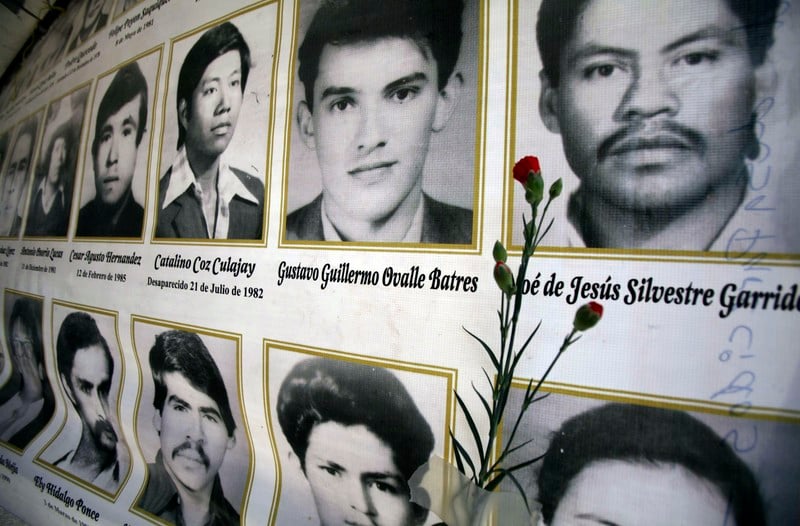
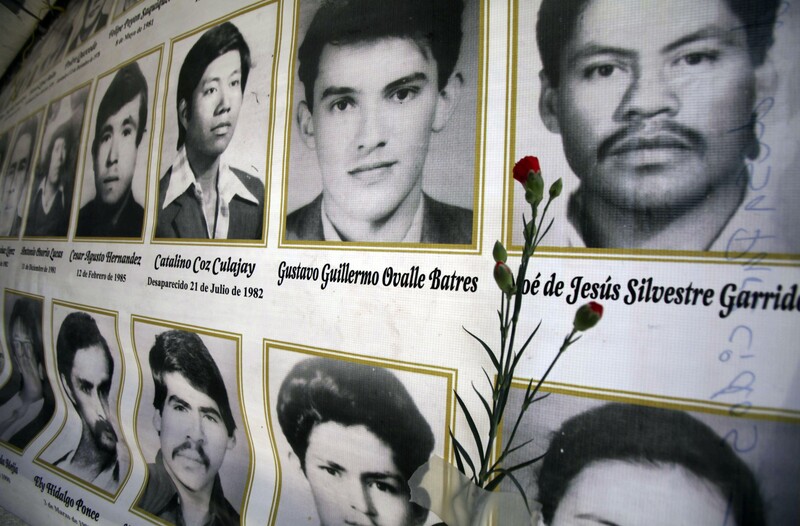




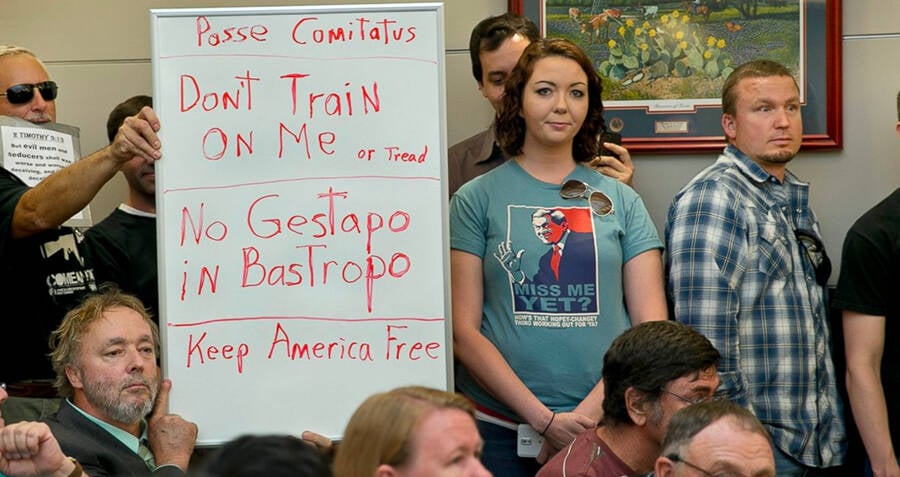
 is late on this Michael Moore story by 5 or 6 months. I covered it months ago, knew about Moore's anti-2nd Amendment ideology years ago.
is late on this Michael Moore story by 5 or 6 months. I covered it months ago, knew about Moore's anti-2nd Amendment ideology years ago. 

